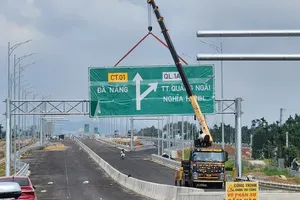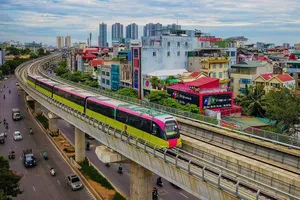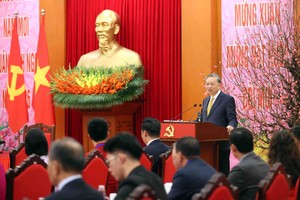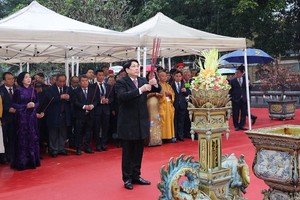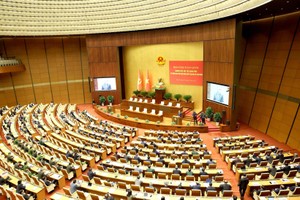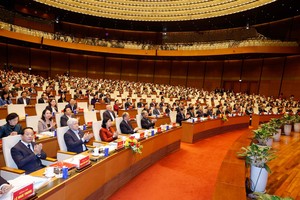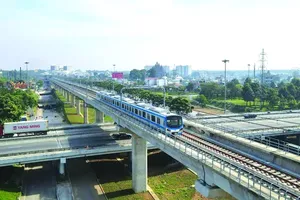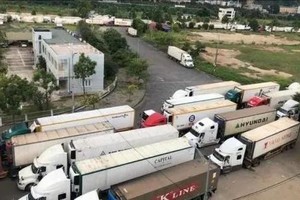
The early implementation of the North-South high-speed railway project is highly likely to significantly impact the development of multiple sectors in the nation. Notably, the steel and infrastructure construction industries stand to benefit substantially because iron and steel will be the predominant materials used in this project.
During the conference last September between the permanent Government and businesses, Hoa Phat Group's Chairman Tran Dinh Long announced that his company has been preparing and studying steel development for the North-South high-speed railway over the past 2-3 years.
The Government has imposed a requirement that investors must use domestically produced goods in bidding packages with the aim to create a huge boost for the construction materials industry, as according to calculations by consulting units, the project needs about 6 million tons of steel of all kinds.
Being the foremost domestic steel manufacturer, Hoa Phat is resolutely dedicated to providing 6 million tons of various steel types for the project, with a particular emphasis on high-speed rail steel and high-strength prestressed steel in addition to delivery of all categories of iron and steel that meet international quality standards and comply with the technical specifications of the bid packages.
The steel company chairman also ensured timely delivery in alignment with the project's progress.
He also offers competitive prices that undercut imported steel, and it stands as Southeast Asia's largest steel producer with a capacity of 8.5 million tons annually.
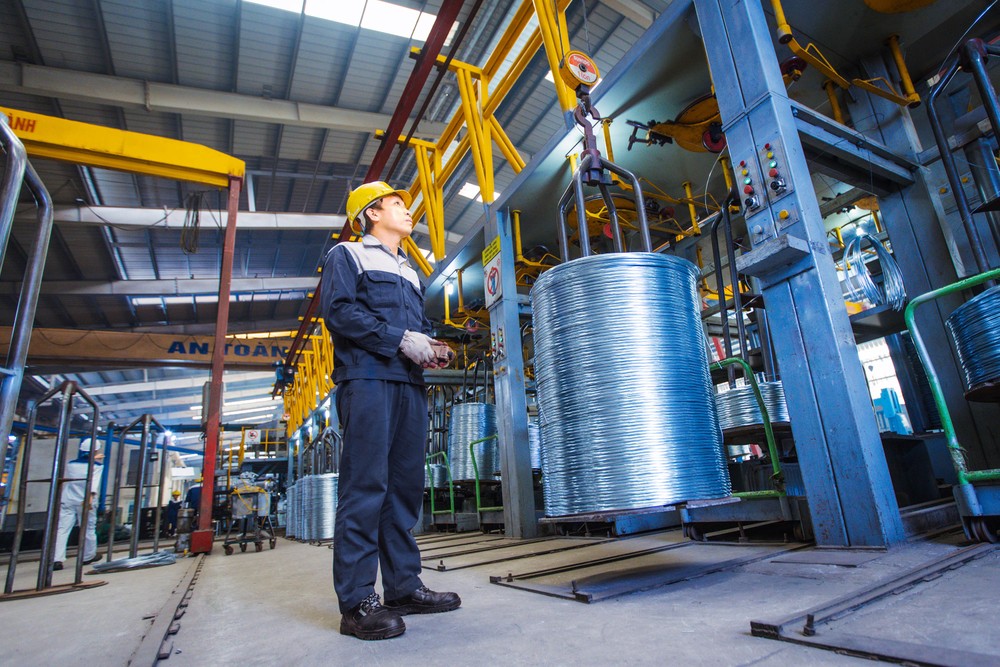
Starting in 2025, the completion of the Hoa Phat Dung Quat 2 Iron and Steel Complex will elevate this enterprise's crude steel production capacity to over 14 million tons annually, comprising 8.6 million tons of hot rolled coil steel and high-quality steel.
The enterprise possesses sufficient capacity to meet the demands of the high-speed railway project. The production of rail steel for high-speed railways falls entirely within the capabilities of the group. Furthermore, Hoa Phat is currently assessing and presenting investment proposals for several significant projects in Phu Yen Province, which includes the iron and steel complex initiative.
Deputy General Director Nguyen Quang Tao of Ngai Cau Investment, Construction and Trading Joint Stock Company, which specializes in the manufacturing and supply of steel structure products, stated that domestic steel production companies possess the full capability to supply steel for the North-South high-speed railway project.
These steel production firms have delivered high-quality steel products to the market, indicating that they can adequately meet the steel requirements for the construction of the project.
Economic experts asserted that in the steel industry, steel products and components will be the group of raw materials that account for the largest proportion in the construction of the high-speed railway project on the North-South axis. Consequently, the steel industry is poised to benefit significantly, particularly when the Government prioritizes the use of domestic steel products.
According to Yuanta Vietnam Securities, not just steel firms, but also companies in the stone, cement, and tile industries with substantial reserves or new licenses, like Hoa An Joint Stock Company, Binh Duong Minerals and Construction Joint Stock Company, and Bien Hoa Construction and Construction Materials Production Joint Stock Company, stand to gain.
Yuanta Vietnam Securities asserts that, in the context of construction activities, while it is probable that the main contractor and consultant will be foreign companies, local contractors still have the opportunity to secure subcontracts. This is particularly true for firms with significant expertise and a strong reputation, such as Coteccons Construction Joint Stock Company and Deo Ca Transport Infrastructure Investment Joint Stock Company (Deo Ca Group).
A representative from Deo Ca Group mentioned that when domestic construction contractors are responsible for project items, material supply enterprises will also have the chance to be involved, similar to their participation in the previous North-South Expressway construction.
The chance to fully engage in the project construction product chain represents a significant advancement not only for individual enterprises but also for the Vietnamese construction industry as a whole.
As assessed by the Department of Industry under the Ministry of Industry and Trade, the high-speed railway project in Vietnam is poised to become a cornerstone of the national transport infrastructure development strategy.
By streamlining transportation between key economic regions and reducing travel times, this project not only enhances connectivity but also stimulates growth in related industries. The construction and manufacturing sector, in particular, is vital in supplying essential materials like concrete, steel, and infrastructure components for railway construction.

